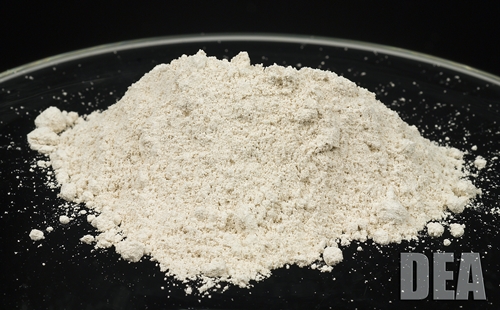7 April 2016. A clinical trial in Canada shows a drug already in use for chronic pain can serve as a substitute maintenance treatment for people addicted to heroin. The findings of the trial, conducted by University of British Columbia in Vancouver and other institutions in Canada, appear 6 April in the journal JAMA Psychiatry.
Opioid addition, particularly heroin, is taking an increasing toll on families and communities worldwide. Opioids work by reducing the intensity of pain signals to the brain, particularly regions of the brain controlling emotion, which reduces effects of the pain stimulus. The illegal drug heroin is an opioid derivative, and the strongest risk factor for heroin addiction is addiction to prescription opioid pain killers.
Among the treatment options for people addicted to heroin are substitute drugs that allow for control and reduction of their substance use. Among these substitute drugs are methadone hydrochloride and buprenorphine hydrochloride, known by its trade name Suboxone. However, these substitute drugs are not always available and some people with addictions cannot maintain their treatment regimens. Prescription-grade heroin, or diacetylmorphine hydrochloride, is often unavailable due to political or regulatory reasons.
The late-stage clinical trial, named Study to Assess Longer-term Opioid Medication Effectiveness or Salome, sought to test if the pain drug hydromorphone could provide another substitute treatment option. Hydromorphone, marketed under its trade names Dilaudid (Purdue Pharma) or Exalgo (Mallinckrodt Pharmaceuticals), is an opioid analgesic drug, approved for long-term chronic pain relief, and formulated for injection, as well as in liquid and tablets.
The study, led by Eugenia Oviedo-Joekes in UBC’s School of Population and Public Health, recruited 202 people age 19 and over with heroin addiction in Vancouver, randomly assigned to receive supervised injections of hydromorphone or diacetylmorphine, the prescription form of heroin. The drugs used in the trial were given at a clinic, up to 3 times a day, for 6 months. Average age of the sample was 44, and 69 percent were male.
The research team looked primarily at the number of self-reported days street heroin purchases were made by trial participants, supplemented by urine tests, during the study period, compared to before. Researchers also tracked number of days participants committed other crimes, as well as safety of the substitute injections.
The results show both hydromorphone and diacetylmorphine are about equally effective in reducing street drug purchases and other criminal behavior. Before the trial, participants were making almost daily purchases of heroin. After receiving hydromorphone or diacetylmorphine, the number of days in which participants bought heroin on the street dropped for both drugs to 3 to 5 days a month. Likewise, the number of days trial participants committed other crimes dropped on average from 14.1 to less than 4 days a month, with the rates about the same for both drugs.
In addition, injections of hydromorphone and diacetylmorphine given at a clinic, had very few adverse effects. Of the 88,451 injections, 14 overdoses and 11 seizures were reported, which were treated on the spot. Had these adverse events happened on the street, few if any clinicians would have been available.
“Our study shows that hydromorphone is as effective as diacetylmorphine,” says Oviedo-Joekes in a university statement, “providing a licensed alternative to treat severe opioid use disorder. Providing injectable opioids in specialized clinics under supervision ensures safety of both the patients and the community, and the provision of comprehensive care.”
Read more:
- Vaccine Developed to Stop Synthetic Opioids
- FDA Assessing Opioid Regulatory Reviews, Labeling
- Trial Underway Testing Opioid Dependency Treatments
- FDA Approves Nasal Spray for Opioid Overdose
- Drug Abusers, Smokers More Likely to Use Opioids Long-Term
* * *


 RSS - Posts
RSS - Posts
You must be logged in to post a comment.